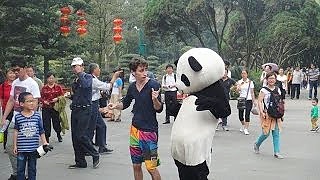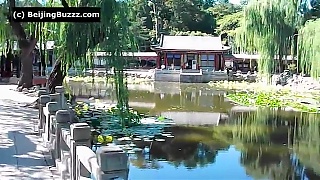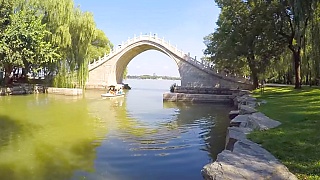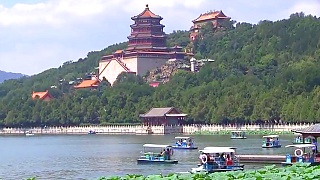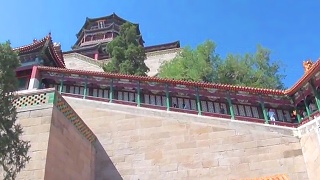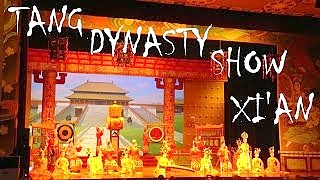 Music and dance at the Summer Palace, BeiJing 北京
Music and dance at the Summer Palace, BeiJing 北京
Two excerpts from one of the frequent free performances at the three-tier, open-stage theater (Grand Stage) by the Garden of Harmonious Interests :
[640],shadow=true,start=,stop=
Related Videos
Featured Videos
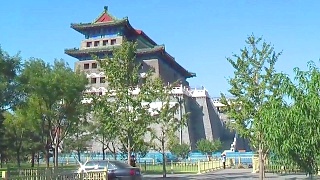
|
BeiJing, Xi'An and ShangHai. A feature-length film.
With Dennis Hurd ...
|

|
YT video comment - "the more freedom is pretended, the more propaganda is needed ..."
|

|
The Bund | WaiTan | HuangPu River | PuXi & PuDong
Pudong | Lujiazui Financial Zone | Oriental Pearl TV Tower
IFC Mall
|

|
July lotuses and the boat to the Summer Palace ...
With MisterVaughn ...
Boating the ancient canal route from downtown BeiJing to the Summer Palace (YiHeYuan) ...
The LiangMa River ...
|

|
With The GrayZone ...
With The New Atlas / Brian Berletic ...
|

|
With Wei's Travel ...
The French Concession in Shanghai is a place that condenses a century of history in modern Shanghai. It is the largest and most prosperous concession among the four concessions in old China. It was handed back to the Republic of China government in 1943, renamed the Eighth District.
The French Concession in Shanghai was opened in 1849, experienced a slight expansion in 1900, and began to expand significantly in 1914 to establish the New French Concession. The French Concession maintained a high degree of independence in old Shanghai. The entire French Concession in Shanghai was the most high-end residential area in old Shanghai, and the architectural style can be said to be uniform. The reason why the Indigo tree is called French plane tree in China is also because it was first introduced by the French and planted in the French Concession in Shanghai.
Shanghai's reputation as the "Paris of the East" is also named after the French Concession. Its architectural style is independent of the public concession and the Chinese border, and is almost the same as Paris thousands of miles away. The French had always maintained great control over the French Concession.
00:00 Highlights 精彩预览
01:40 ZIKAWEI Shopping Area 徐家汇商圈
04:22 Hengshan Lane 衡山坊
09:53 Xujiahui Park 徐家汇公园
22:07 EMI Building 百代小楼
25:10 Hengshan Boulevard 衡山路
27:29 Lipo Garden 丽波花园
31:08 Gaoan Garden 高安花园
33:57 Yongping Lane 永平里
38:52 No.8 Hengshan Avenue 衡山路8号园区
48:03 Hengshan Boulevard North Part 衡山路北段
50:32 Shanghai Symphony Orchestra 上海交响乐团
53:58 Clemen Apartment 克莱门公寓
58:31 Urumqi Middle Road 乌鲁木齐中路
01:07:58 Anfu Road 安福路
01:20:44 Wiggle Wiggle Flagship Store
01:29:36 Wukang Road 武康路
01:38:28 Ferguson Lane 武康庭
01:47:41 Wukang Building 武康大楼
01:52:03 CITE BOURGOGNE 步高里
01:54:57 Ruijin Hotel 瑞金宾馆
02:06:34 Yongkang Road 永康路
02:12:45 ICCF Garden 之禾卡纷花园
02:16:28 Shanghai Conservatory of Music 上海音乐学院
02:23:05 Old Downtown Highlights 梧桐街区精华
|
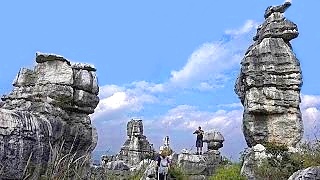
|
石林, ShiLin County, YunNan, south China.
This area, covering around 500 square kilometers in all, lies about 90 km east of the provincial capital KunMing and is comprised of seven scenic areas featuring amazing limestone karst rock formations.
The Stone Forest began around 270 million years ago as a shallow sea. Extensive deposits of sandstone overlaid by limestone accumulated during the Permian period. Subsequent uplift of this region followed by exposure to wind and rain shaped the landscape we see today.
Filmed in Ultra HD (4K).
|
Tag search ?
 Music and dance at the Summer Palace, BeiJing 北京
Music and dance at the Summer Palace, BeiJing 北京

![A great film of the Great Wall north of Beijing, including `wild wall`, accompanied by great music (踏古 (Ta Gu) by Lin Hai, `Walking into Ancientry`, with Chinese lute (pipa)). We [mum, dad - videographer - and son and daughter, from Singapore] hiked 3 sections of the Great Wall in winter, without any guides after studying blogs and posts by fellow hikers. All these sections are different. From the unrestored GuBeiKou Great Wall where we were the only people around, to the wonderful JinShanLing, where the climb is steep and every direction gives you good photo opportunities, to the restored MuTianYu where we hiked in heavy snowfall. We stayed at local farmhouses on both nights, dined with the locals and hitched rides to nearby bath-houses. Temperature ranged from -5 deg C (day) to -12 deg C (night). Winter daybreak is at 7am and the sky becomes dark by 5pm so one has only 10 hours of daylight, so plan your travelling and hiking schedules carefully. This once-in-a-lifetime experience was captured on video and we would like to share it with you. The feelings just can`t be described - you need to experience it first hand. Take only memories, leave only footprints and kindness . . . A wonderful animation combining traditional Chinese painting and dance - don`t miss it ! 踏古-林海 作曲:林海 视频作者:中国传媒大学动画学院 Hiking the Great Wall 长城 of China in the snow](https://www.beijingbuzzz.com/b183.jpg)
